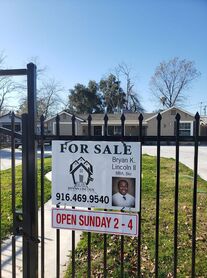|
Personal loans are a useful source of financing for many borrowers. Interest rates tend to be well below what you’d pay using a credit card. They’re usually unsecured, unlike mortgage loans that put your property on the line. And you can use personal loans for nearly anything you want.
However, personal loans can come with unexpected fees. And some lenders charge more than others. This guide explains some of the common fees to watch out for when applying for a personal loan and comparing lenders. Loan origination fees Loan origination fees are likely the most common type of fee. You’ll pay this fee upfront when you borrow. What is an origination fee? A loan origination fee is charged when you first take out a loan. Its purpose is to cover the costs that lenders face to underwrite and process the loan. An origination fee is usually charged as a percentage of the loan amount. They can vary from around 1% of the borrowed amount to 10%, depending upon the lender. The fee is usually subtracted from the loan: If you borrow $10,000 and pay a 1% origination fee, you’ll receive $9,900 in funds. Loan application fees Application fees are also paid upfront but are much rarer than origination fees. Lenders charge them to cover the costs of processing an application submitted for a loan, and they vary by lender, loan type, and amount borrowed. If a lender you’re considering charges an application fee, you can easily find an alternative that doesn’t. Late payment fees Late payment penalties aren’t charged when you obtain a loan, but rather if you make a monthly payment after it’s due. These fees are intended to deter late payments and cover any costs a lender incurs to collect the payment. Some lenders charge a flat rate while others charge a fee equal to a percentage of the late payment. Flat rates on loans we’ve reviewed tend to be between $10 and $40, but could be as high as a $100. A percentage-based fee is usually 5%. Prepayment penalties Prepayment penalties are sometimes charged if you want to pay off a personal loan ahead of schedule. Not all lenders charge them, but those that do aim to recoup some of the interest they expected to obtain throughout the life of the loan. A prepayment penalty is generally based on how long you have had your loan and your outstanding loan balance. If you have just a short time left in the repayment term, your prepayment penalty will be smaller. Annual fees While not common, some lenders charge annual fees during the time you have a loan. These are intended to cover costs associated with servicing a loan, such as collecting and processing payments. Personal loan annual fees are usually less than $100. See the full guide here: Common Personal Loan Fees & Charges Article submitted by Andy Kearns, LendedU.com
0 Comments
Downsizing is one of the most emotionally challenging moments in seniors face. In time, however, it can also be one of the most liberating. The anxiety seniors feel over downsizing isn’t just the purging of belongings or moving to a new place; it’s also stressful to decide what to do with your current home—a place where you may have made many cherished memories.
Considering downsizing after retirement but not sure what to do with your home? You may feel overwhelmed and unsure of where to start. Here are three ideas you can explore to help make your decisions a little easier. Get a Lump Sum: Sell Your Home Many seniors choose to sell their home to pay for a smaller house or an apartment in an independent living facility. The first thing you need to do is research what your current home could fetch on the housing market. Research the average sticker price for homes in your area of similar size and features. You may find out that with a few simple upgrades, you can increase the resale value of your home substantially. With a lump sum from a home sale, you can put a downpayment on your next residence or, even better, buy it in cash outright. Since many seniors have often paid off their mortgages, you can even plan to purchase a new place that is far less expensive so you have some extra cash to cushion your retirement fund. Earn Monthly Income: Rent Your Home Seniors who downsize into a smaller residence can earn regular income by renting out their old home. This can be especially helpful for seniors living on a fixed income during retirement. The additional monthly cash flow, especially if your mortgage is already paid off, can help fund post-retirement fun like travel. Just remember you have to foot the bill on any big fixes your tenants require. And you may suffer financially if your home lies vacant for a few months or a tenant doesn’t pay you rent. Many seniors have embraced the role of technology when it comes to renting their homes. Turn your home into a vacation rental by listing it on Airbnb, Turnkey, or VRBO. You can rent your home for both short-term and long-term guests. Either way, you can also hire a property manager to do the heavy lifting for you, so you can just sit back and earn income. When looking for a management company, find one that provides tenant screening, seamless booking, cleaning services for new guests, and all-hours local support. Protect Your Investment: Keep Your Home in the Family Letting a loved one move into your home after you downsize has several benefits. You can keep your home in your financial portfolio, protecting the investment you have spent decades to build. It’s a way to let your loved ones enjoy their inheritance before you pass on. It also helps to know your home is being cared for by people who are not strangers. Your family member can manage the upkeep of your home, make upgrades, keep the lawn tidy, and oversee remodeling projects. However, one of the biggest benefits isn’t financial; it’s emotional. With your house still in the family, you can return whenever you feel the need. Whether it’s to celebrate a holiday or for a family dinner, you don’t have to say quick goodbyes to the place that has provided the foundation to many of your life’s memories. Deciding what to do with your home after downsizing isn’t a process that should be rushed, but sometimes you don’t get a choice. If you can’t take your time to think through all the options, try to focus on the decision that sets you up for financial success. You friends and family can be your support as the other pieces fall into place. Article contributed by: Jim Vogel Maybe there’s been a recent uptick in home invasions in your neighborhood, or you just moved into a new home. In any case, it’s time to think about safety and home security. The first thing to consider is your home itself, since its size, type, and location will all determine what’s needed (and what’s actually possible). Some apartment complexes or condos will have strict rules about drilling into exterior walls, renters will likely have to follow their landlord’s specifications, and a two-story home will need different equipment than a 12th story studio, to name just a few examples. However, once you’ve figured out which security system is best for your needs, there are a few other considerations to look into.
|
Archives
July 2024
Categories |


 RSS Feed
RSS Feed